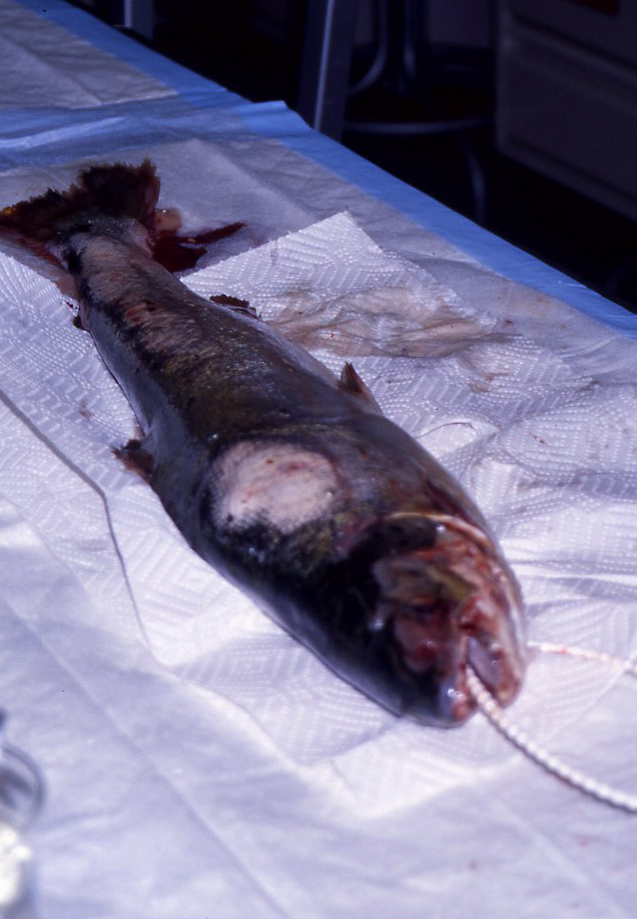In October, NASDAQ threatened to de-list the salmon company AquaBounty due to its depressed share price. Best known for developing genetically engineered salmon that can grow to market size in a third of the time as normal farmed salmon, AquaBounty has seen its share price below a dollar for more than 30 days, and trending down. Shares are currently trading at 65 cents, down from over $23 per share in 2017.
The FDA permitted growing and marketing the fast-growing salmon in 2015, provided the fish were grown in land-based facilities, and AquaBounty has been engaged in land-based production since 2019.
Although the company webpage touts an expected 55,000-ton harvest by 2028 – from a proposed salmon farm in Ohio – reports from a whistleblower at AquaBounty’s experimental farm in Indiana have drawn some media attention.
According to a report compiled by anti-farmed salmon activists and the Northwest Atlantic Marine Alliance, a former AquaBounty employee, Braydon Humphrey, claims that the Indiana facility regularly violated food and worker safety standards, ignored animal welfare concerns, and has had environmental impacts that investors were unaware of. The report notes that Humphrey’s accusation that AquaBounty jeopardized its worker’s health was investigated and dismissed by the Occupational Safety and Health Administration (OSHA).
But while regulators may be slow to act, investors’ reluctance to bid up the share price appears to signal their concerns about the company.
The warning from NASDAQ gives AquaBounty until May 1, 2023, to get its share prices up, or be de-listed. An article on the website Intrafish reports that AquaBounty has lost $5.5 million in the second quarter of 2022, and that the company has lost over $100 million since it began in 1991.
Intrafish reports that AquaBounty and other land-based fish farms have suffered from production challenges, and all are facing global economic trends that make investors reluctant to bet on what has so far been a losing proposition.







